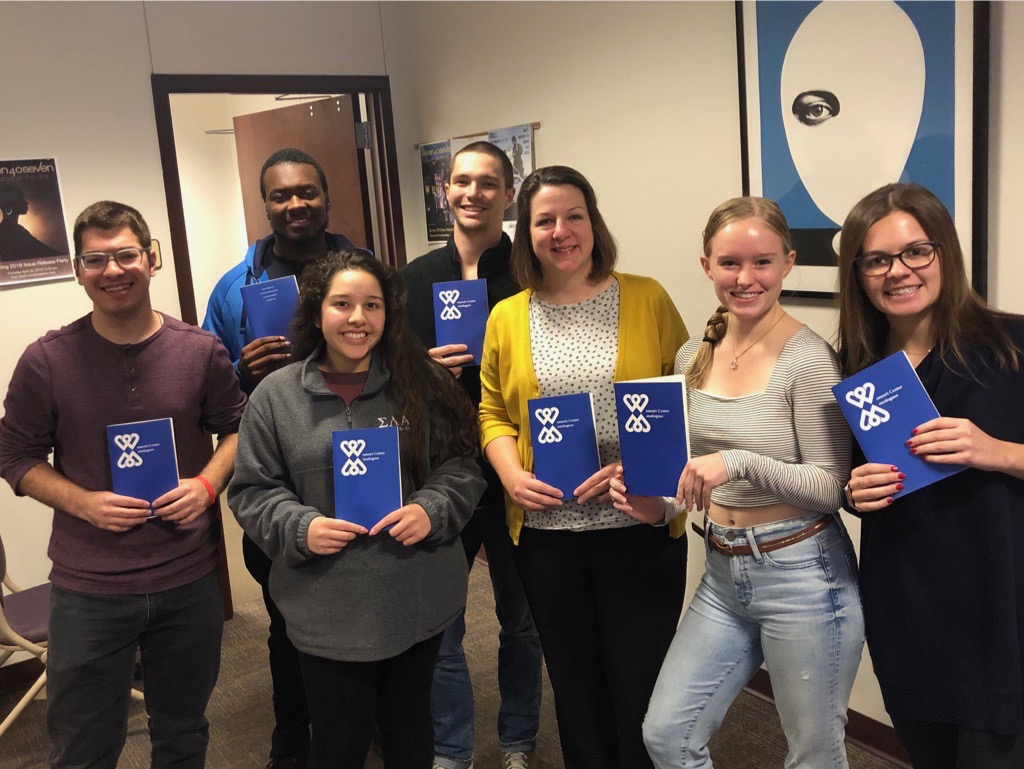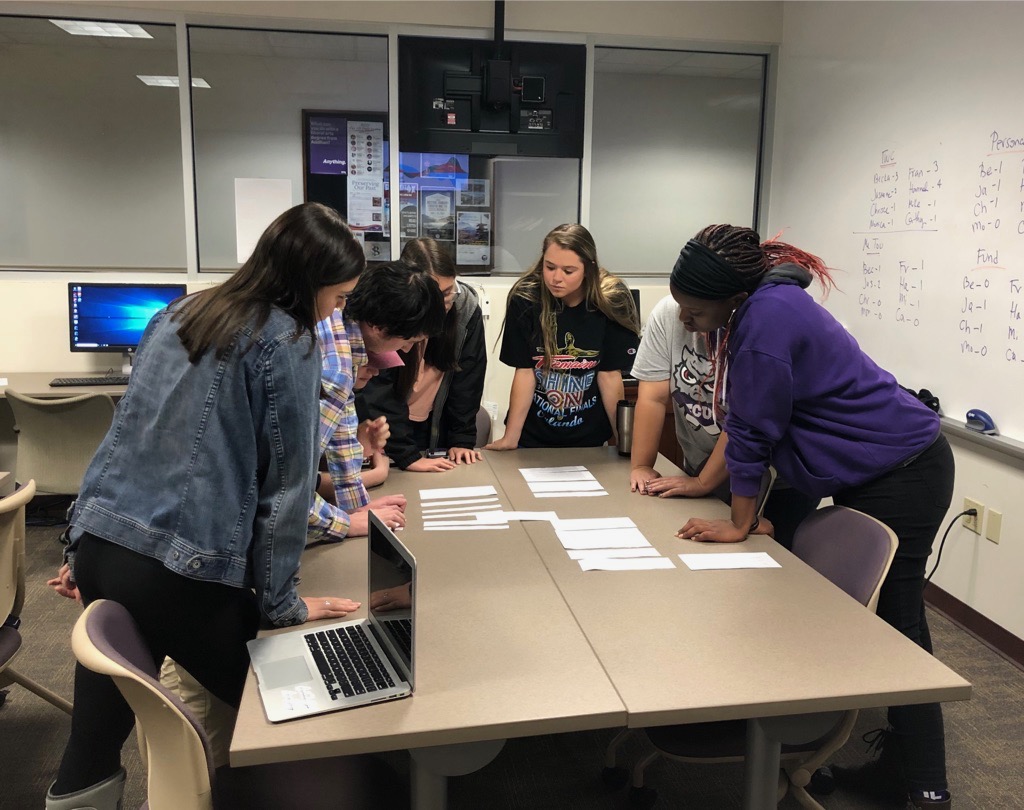How Chantel L. Carlson Turned Her Class into a Way for Survivors of Assault and Abuse to Share Their Stories
Chantel Carlson, Ph.D., wanted to give her Writing Internship students a service-learning experience that would be both educational and impactful in the community. The Women’s Center of Tarrant County, which assists men, women and children facing violence and economic hardship, was the perfect partner. Carlson’s students created a chapbook — a book shorter than 60 pages — of stories of sexual assault and violence survivors from the Center’s staff and members of the community.

What were the origins of this project and the involvement of The Women’s Center?
In 2018, I developed a student-centered service-learning course, Publication Production – Community Outreach: The Women’s Center Chapbook. Students worked with The Women’s Center of Tarrant County by collecting stories from staff members, community partners, and survivors of sexual assault and violence to create a series of monologues that reflect on the Center’s mission: “To inspire and empower women, men and children to overcome violence, crisis and poverty.”
Before the course, I met with Katharine Collier Esser, the Center’s assistant director of research and training services, to establish goals and plan interviews. I began the first two weeks of class by acquainting students with The Women’s Center, as well as by teaching how monologues are used as vehicles for social change. The course shifted to one that is student-driven, which empowered the students’ creativity and leadership skills. They condensed and edited roughly 200 pages of transcriptions. Each year, we distribute copies at eleven40seven’s Release Party and to The Women’s Center.
My goal for this service-learning course was not only to allow students to work with a nonprofit organization in the Fort Worth community, but also to provide a platform for often-silent voices to be heard.
How did the class work with The Women’s Center to produce the chapbook?
This year, interviews were conducted on site at The Women’s Center. Prior to interviews, Katharine gives students a tour of the Center (and also provides students a space to debrief after interviews) Then, each student meets with a participant and records answers to their prepared questions. Once interviews are completed and transcribed, we spend several weeks voting on and deciding which parts of the interviews we will include in the chapbook. Then, we come up with titles for each section that highlight major themes, line up all of the interviews we’ve agreed upon, and assemble the puzzle pieces to creative a cohesive narrative. Finally, students themselves design the cover and complete the layout for the chapbook using InDesign with the aid of TCU’s Center for Digital Expression.
“This class was probably the most important one I took in college. It taught me how to work in a publication setting and how to collaborate and actively communicate in the long-term with a team so we could create something impactful to the community.”
- A TCU Student on The Women's Center Chapbook project
Beyond helping The Women’s Center, what other experience did students gain from the course?
To create the chapbook, students in the course gained knowledge of and experience in:
- The history and purpose of monologues as a form of dramatic storytelling,
- The collection, selection, editing, and proofing of participants’ stories,
- The design of the chapbook’s print layout, and
- The distribution and promotion of published chapbook.

How does The Women’s Center use the chapbook?
The chapbook affords The Women’s Center with a tangible item that they can use not only to show potential clients how they have created a positive impact, but also as a promotional tool that can be used to seek continued funding for the work they are doing. They rely heavily on funding and promotion to keep their services in operation so they can serve clients.
Both The Women’s Center and my students have given testimonials about how important the work that we are doing is and continues to be. This semester, we will feature survivors’ stories for the first time and work directly with their therapists, as well. Stories they have shared range from being survivors of rape and domestic violence to stories about the work of aiding survivors of sexual assault and violence with therapy and education is needed.
What kind of feedback has the chapbook received?
Note: Names withheld for privacy.
Women’s Center staff member: “[The chapbook project is] wonderful opportunity for students to hear stories about people in the community as a way to connect and continue growing in their empathy skills.”
TCU student: “This class was probably the most important one I took in college. It taught me how to work in a publication setting and how to collaborate and actively communicate in the long-term with a team so we could create something impactful to the community.”
TCU student: “Thanks to working on The Women’s Center chapbook, my heart has grown and my mind has expanded. I have a better understanding of my relationship to others, and now I have friends who aren’t exactly like me. I’ve grown a lot as a person through this project, and I can’t imagine graduating college without it.”
TCU student: “I found a class full of great students, a passionate professor and a project more than worth my time. I’m glad that I ended up taking this course, and I hope that my experience can only make it better in the future. It’s not an exaggeration to say that this project for The Women’s Center changed me for the better; it’s something I’ll remember for the rest of my life.”
Editor’s note: Responses have been edited for length and clarity.
For information on incorporating service learning into course curriculum, contact Rosangela Boyd, director of service learning and academic initiatives.
